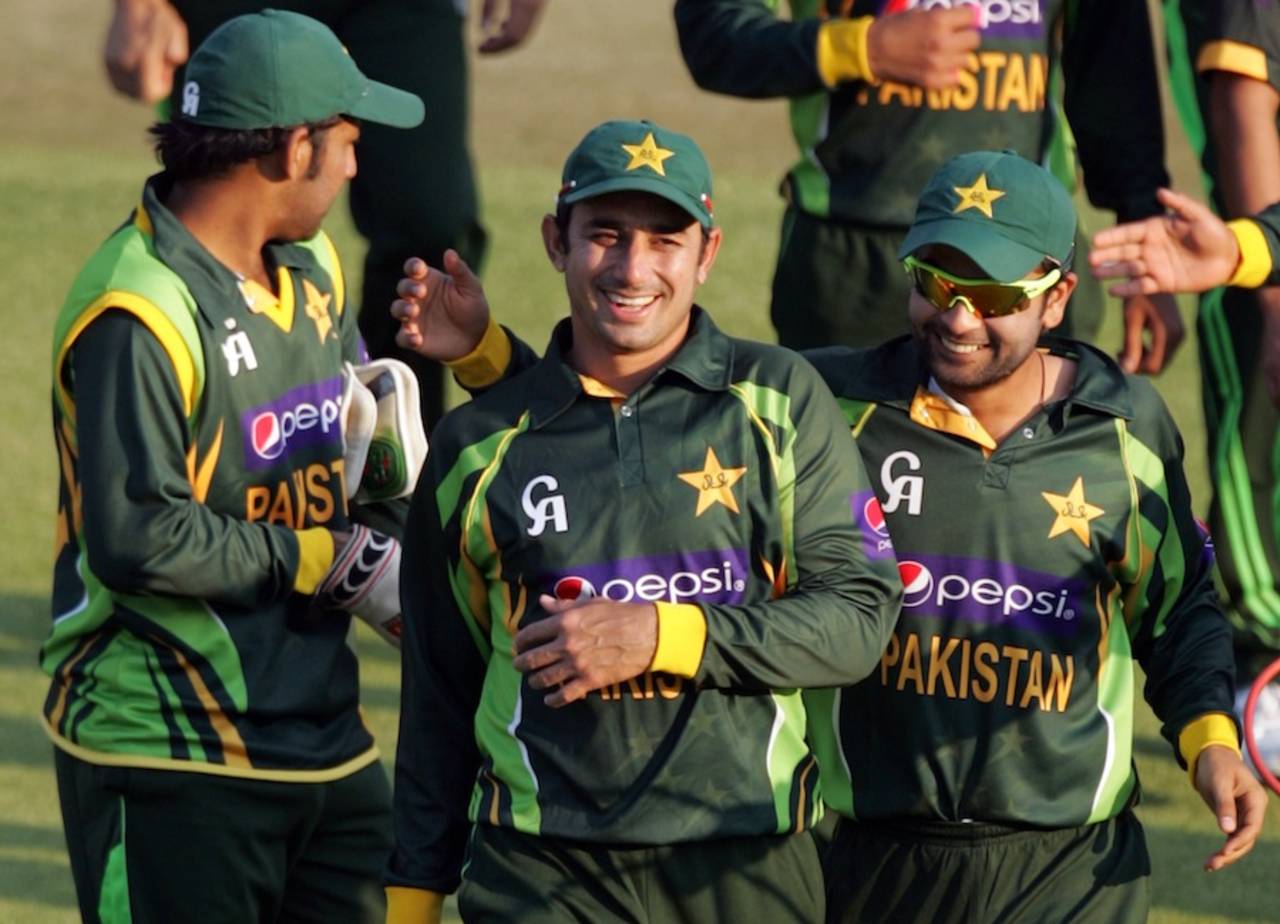Catch dodgy actions early
Kids mimic the cricket heroes of the day, so the problem of throwing must be tackled before players reach the first-class level
Ian Chappell
21-Sep-2014

Batsmen get immediate protection from a no-ball but not from a thrown delivery • AFP
I don't know what prompted the ICC to suddenly get tough on dodgy bowling actions, but it ranks as a classic case of better late than never.
The situation regarding dubious actions had reached the ridiculous stage, far worse than in the late 1950s and early 1960s in Australia, where cricket fans could have been excused for thinking the country had deemed baseball the summer game.
As an impressionable young cricketer, I watched a lot of games at Adelaide Oval and I speak from experience in relating the effect dodgy actions can have on the game's future.
I was a schoolboy batsman/legspinner, but having seen the passing parade of herky-jerky actions at Adelaide Oval I changed to bowling offspin. In reality I bowled predominantly offspin and chucked a couple of deliveries each over. I figured if they weren't calling the guys at Adelaide Oval then, as a baseball catcher in the winter with a decent arm, I could gain an advantage by pelting a couple per over. I even opened the bowling in our club schoolboys' team, because we were short of quickies, and pelted a few with the new ball.
I was then selected in a combined schoolboy team during the Christmas holidays. When I hadn't been called on by tea time I asked the coach: "Why aren't I getting a bowl?" The coach, Howard Mutton, a South Australian player with a dodgy offspin action of his own, replied: "Because you're a chucker".
I immediately reverted to legspin and didn't have any further problems.
A few years later Australian fast bowler Ian Meckiff was no-balled for chucking in a Test match at the Gabba. This was the culmination of a clean-up campaign conducted by chairman of selectors Sir Donald Bradman, who was determined to eradicate dubious bowling actions. It didn't take much of a mental leap to assume Bradman had told Mutton I wasn't to bowl in that club game.
There are two conclusions to be gleaned from this story. Bradman had the right idea, because kids are mimics and will copy the heroes of the day, and a sure way to eradicate dodgy actions is stop offenders before they reach the first-class arena.
The fact that the ICC has finally put an end to the Saeed Ajmal farce - he would have looked suspicious even in Australia in the late '50s and early '60s - is an indication the governing body might finally be serious about cleaning up bowling actions.
Nevertheless, it's hard not to reach the conclusion that Pakistan are a "soft target" when it comes to prickly issues like chucking and corruption. When the ICC starts spreading an all-encompassing net in regard to these two highly contentious issues then I'll believe the playing field is level.
The ICC needs to take a leaf out of Bradman's book and stop young "doubtful" bowlers before they reach the big time. They should have adopted this approach back in the nineties, when dubious actions had again started to infiltrate the game.
However, the one area of the chucking issue the ICC hasn't addressed is the law as it applies to on-field immediacy. How come a batsman is protected when a bowler oversteps the front line by a millimetre but he isn't when a trundler suddenly pelts one after bowling the bulk of his deliveries?
Batsmen need immediate protection in this case rather than getting a letter from the ICC six months later apologising because they have discovered the delivery that uprooted off stump was illegal.
I'm all for cleaning up bowling actions. Graeme Swann was a perfect example of how an offspinner can be highly successful with a clean action. Nevertheless, if the ICC is going to police bowling actions, in the interest of fairness, they should also make the switch hit illegal.
Not only is it important to keep the contest between bat and ball fair, it also pays to remember kids are great mimics.
Former Australia captain Ian Chappell is now a cricket commentator for Channel 9, and a columnist